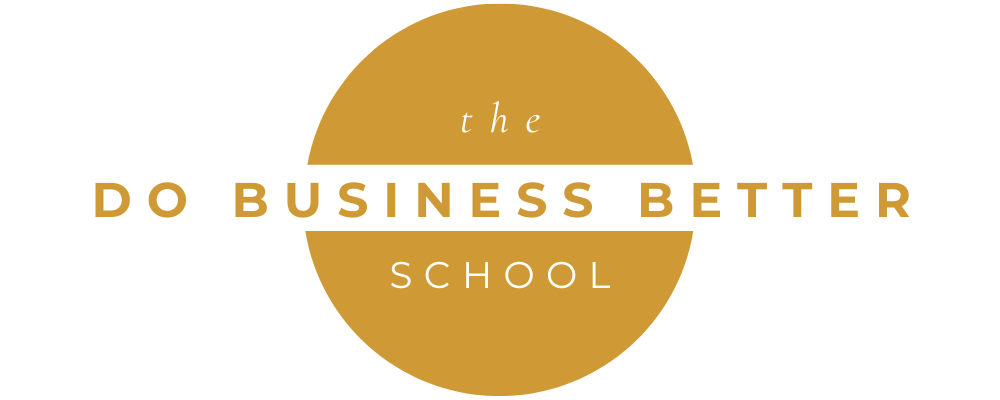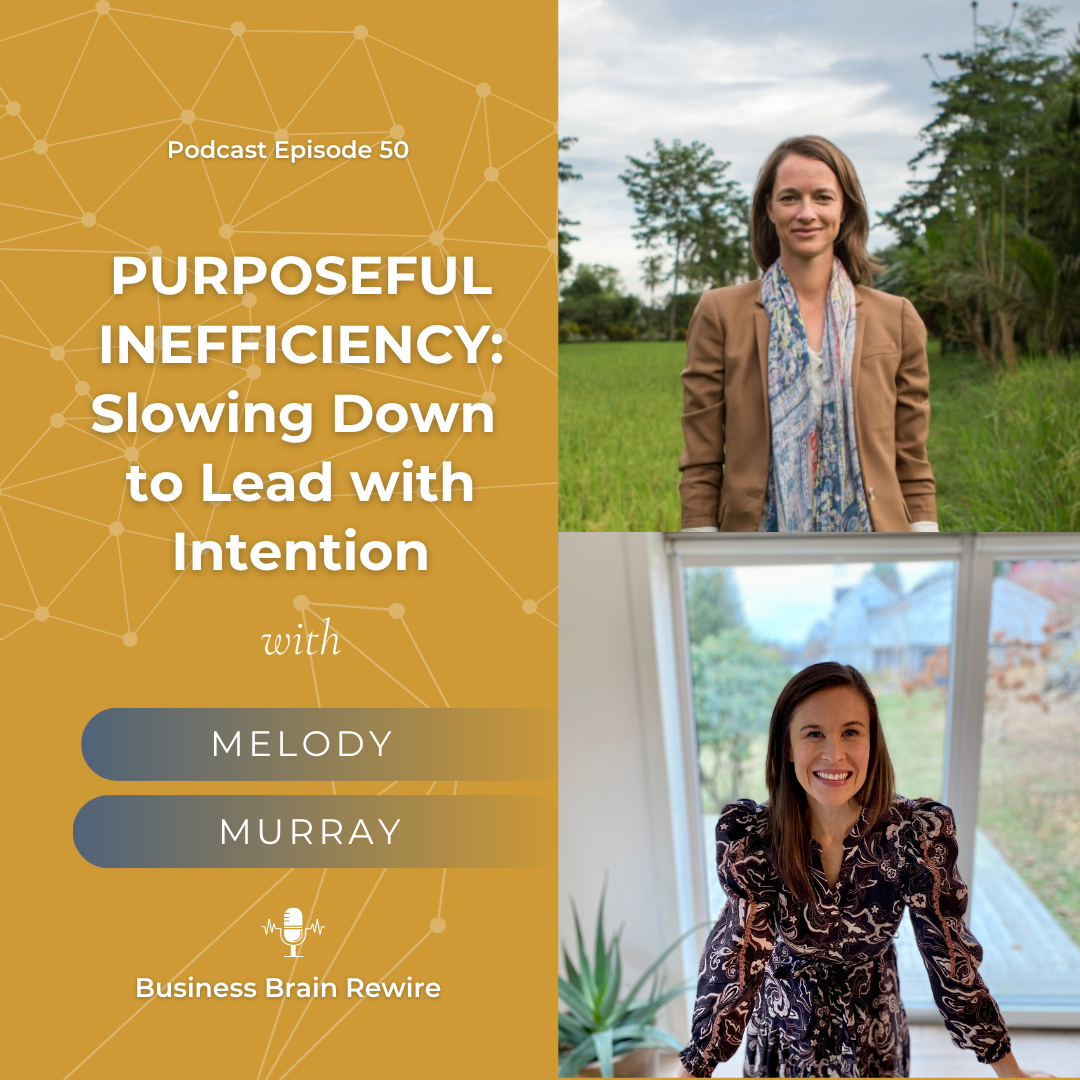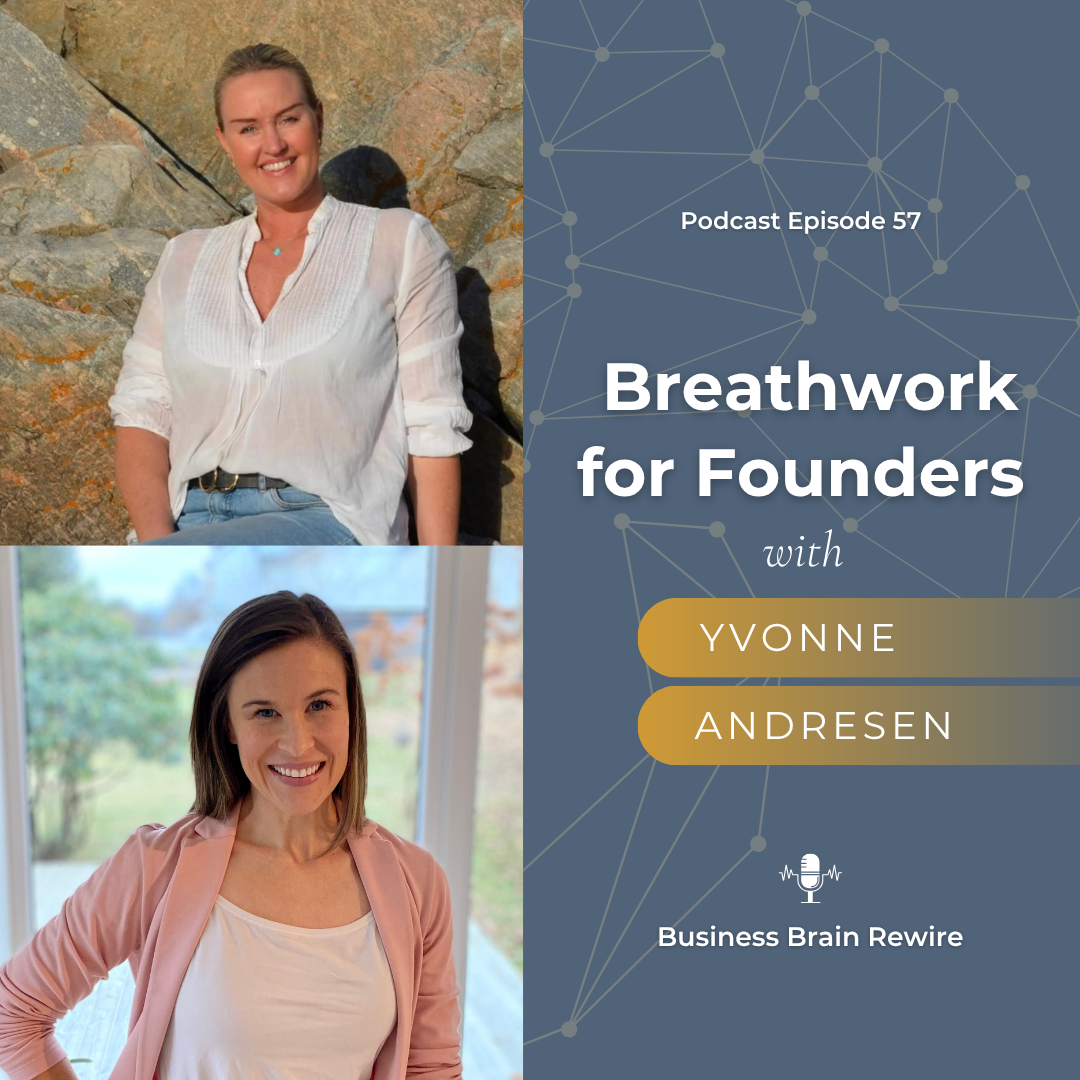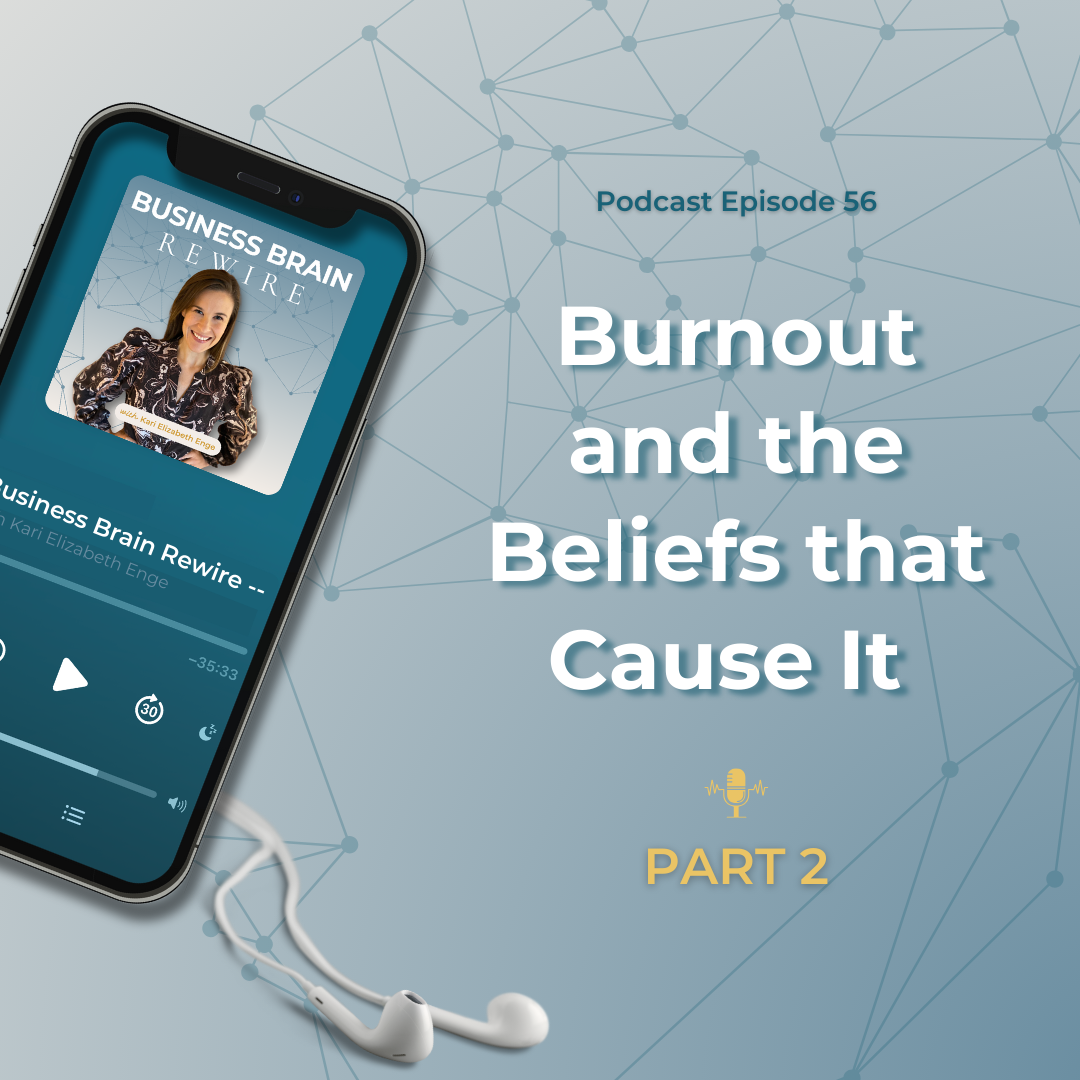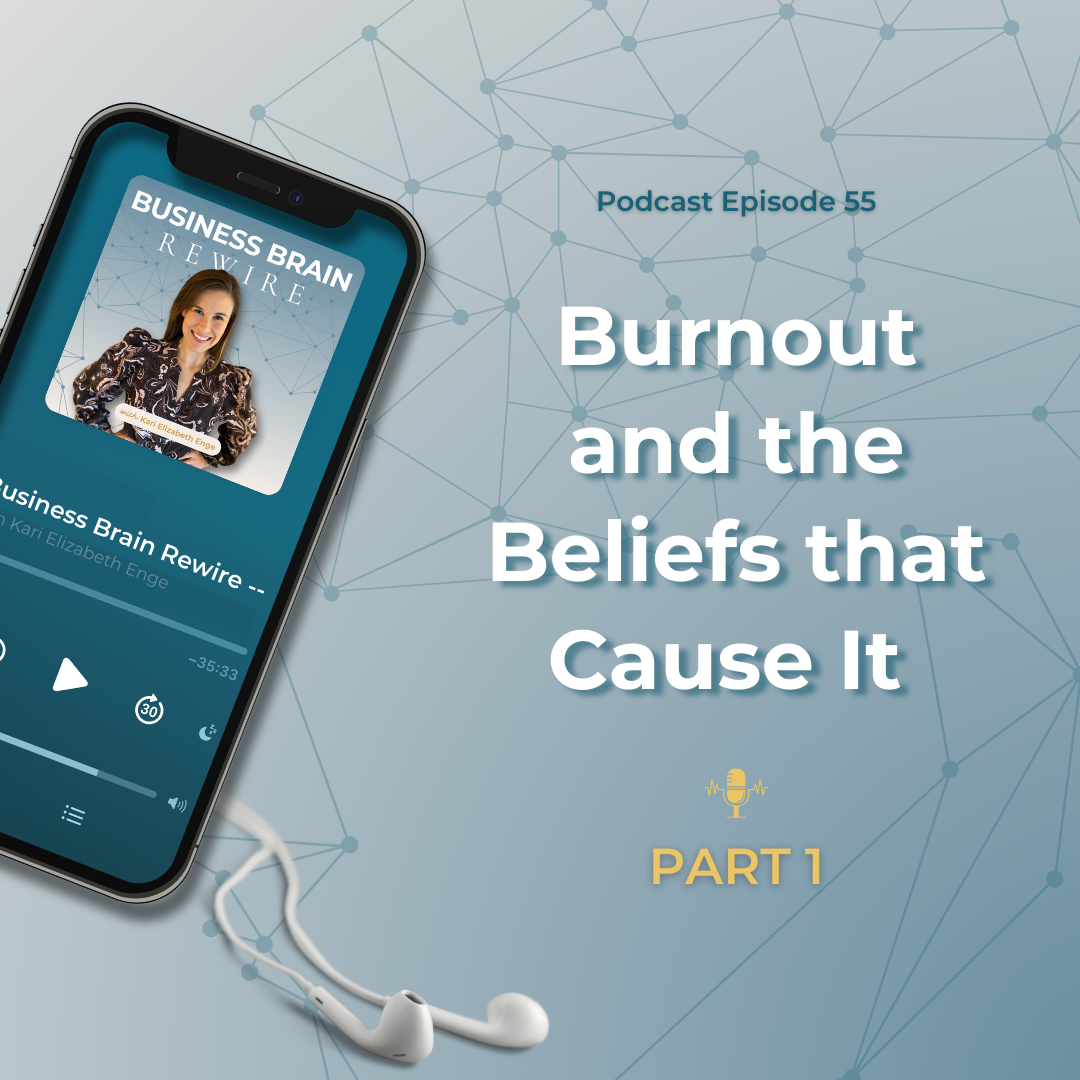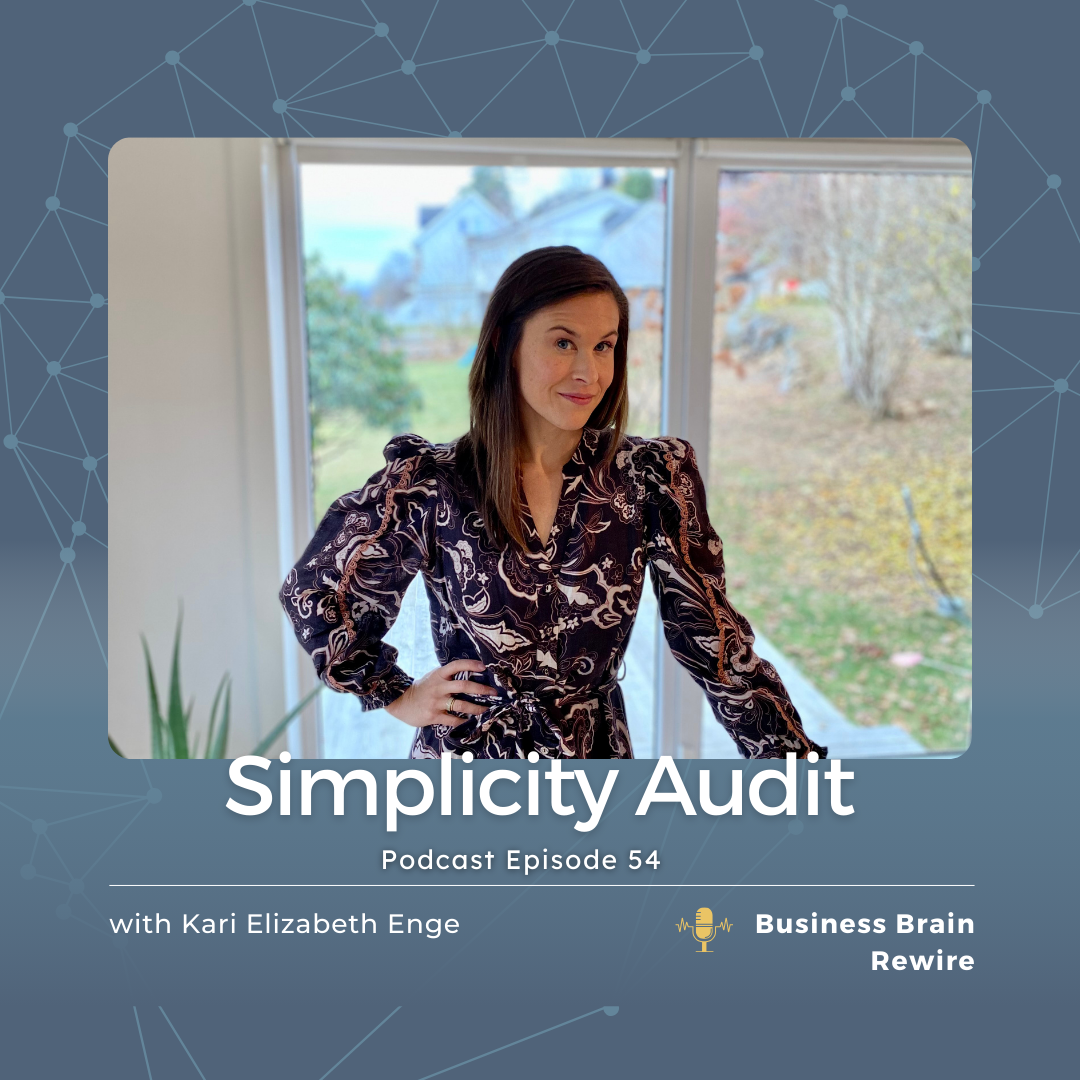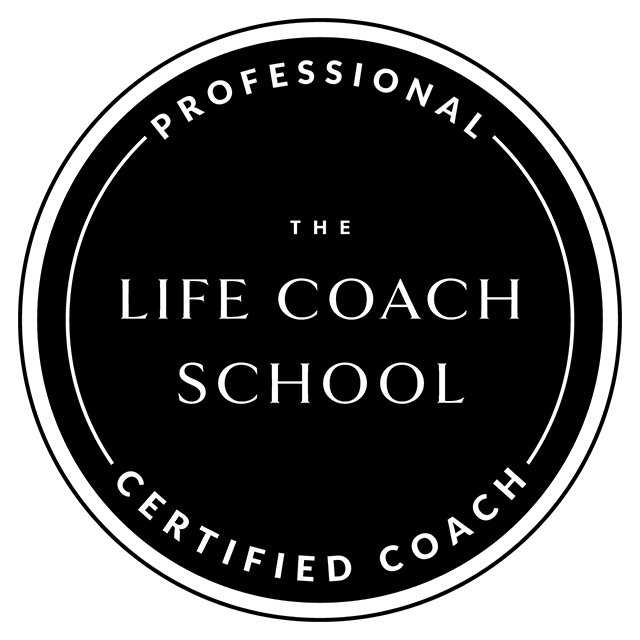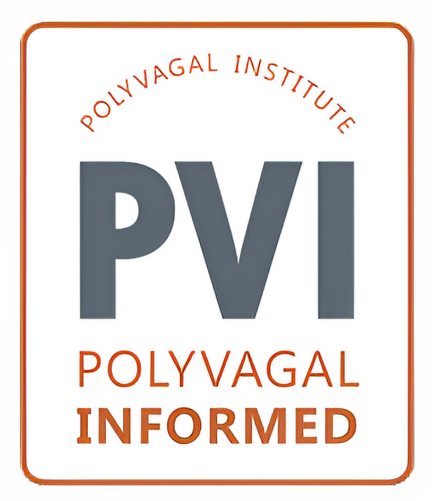The ones who moved fast. Optimized everything. Tightened timelines and tightened margins.
But then I met Melody Murray.
Mel is the founder of JOYN, a fair-trade fashion brand that creates handcrafted goods in partnership with artisans on the border of Myanmar and Thailand. She literally hopped off a motorcycle and into this interview—and what she shared has stuck with me ever since.
Mel’s entire business philosophy is built on something you rarely hear in startup circles: Purposeful inefficiency.
Slowing down. Making room. Prioritizing people over profit, and process over performance.
At first glance, it sounds backwards. But in reality? It’s bold. Strategic. And rooted in something so much more powerful than hustle: love.
💡 Neuroscience confirms it: when you reconnect with your “why,” you unlock the parts of your brain responsible for innovation, long-term strategy, and creativity.
So if you want more sales, lean into meaning.
If you want more growth, lean into purpose.
If you want faster breakthroughs, lean into connection.
This episode will expand your definition of success—and maybe even rewire your goals for good.
[00:05:57] Purposeful inefficiency. A lot of you might be scratching your heads because these two words just don’t normally go together in business. What is purposeful inefficiency and why is this concept so important for our purpose-driven companies? How do we incorporate purposeful inefficiency into our businesses so that it’s not just an interesting tagline, marketing ploy, but it’s something that’s integral to our whole philosophy as a business, from our social impact to our sales approaches. Purposeful inefficiency is an important concept that you’ve probably never heard of, and today, Melody Murray is here to share her personal entrepreneurial journey with you and how you can incorporate purposeful inefficiency into your company too.
[00:06:45] Melody Murray is the founder of Join a fair trade brand that’s reviving tradition, restoring fashion and reclaiming transparency with every artisan and employees and every handbag it makes. Mel literally hopped off her motorcycle to tune in from a little cafe on the border of Myanmar in Thailand to chat with me one rainy day, and she was really everything I expected her to be as a founder. I have looked up to her for some time now and just was so happy to find out that she was exactly as I pictured her to be: smart, relaxed, and just full of intention. Her insights really, really blew me away. In fact, there are things that Melody shares in this conversation today that have shifted my mindset entirely as a business owner. Her philosophy of purposeful inefficiency, is really sparked by the love of people, and then it just infuses every part of her business strategy. From her courage to take risks to her corporate structure, to her funding partners, to her team, and to her leadership. I am so honored for you to gain wisdom from Mel just as I have, as we really touch on familiar experiences that most entrepreneurs face in this conversation today, like fear, failure, and funding, as well as love and letting go. It’s all here today on the podcast.
[00:08:11] Hi Mel. Thank you so much for coming on the podcast today.
[00:08:14] Yes. Hello Kari. Hello from Asia.
[00:08:18] So I have really been looking forward to this conversation and I have so much I want to ask you. But I guess first let’s just start off by having you share just a little bit about who you are and what you’re up to these days, where you’re at.
[00:08:33] Great. My name is Melody Murray. Everybody calls me Mel. I just turned 40 last week. I am a mother of two young boys, married for almost, well, a little over 19 years, and my husband and I have been living and working in Asia, rural Asia, different parts of rural Asia for almost 14 years now. It’s such a long story. How do you ever just get it? Let’s just start with that for now.
[00:09:01] So you you lived in India for quite a while, right? How long did you live in India?
[00:09:07] Yeah, we lived in India from 2010 to the end of 2015. And before that we were in and out of the region of China. Yeah. Now we’re in the Golden Triangle, the border of Myanmar, Laos, and Thailand, and we’ve been here a little over a year.
[00:09:26] I would love for you just to share a little bit about the beginning journey of join your company and how that all got started.
[00:09:36] Yeah. You know, like many beginning ventures, it was not a linear process. My husband and I felt such a passion and calling on our lives to live and work among marginalized communities and have wanted to do that since the day we met, actually over 20 years ago. So moving to Northern India, we were in a small rural community there that mainly just needed opportunities that Dave and I were born into opportunities that they didn’t have. And so we began to develop out just passion for job creation. We also both have a shared passion sort of for artisanal work or craft work with hands. But also a real desire to see artisans connected with markets so that they can scale businesses and create more jobs. So less on the sort of handy craft startup and more on the scalable model of creating jobs for entire communities. So we began in a small village there that had welcomed us and asked us to come. Quite honestly, when I think back to some of those beginning months, which sometimes get a little fuzzy because you’re going through culture shock, and I was raising two toddlers at the time and learning a language. But I remember one particularly special day where I called my mother in the morning, so it would’ve been her evening and I was crying and saying, I don’t know how in the world am supposed to start a business in this crazy place with these different people in different languages and raising my kids. And I just communicated such a hopelessness to her and I remember her telling me, you just get up and you start walking down the street and you’ll meet the right people and everything will be okay. And I remember thinking that’s so simple, but it actually in many ways is quite true of many of our lives. If you just get up and keep going and put one step in front of the next things happen. So I began to meet people doing good work in North India and began to piece together a vision for really a community of artisans that would group together as a family and create a line of textile-based handbags. So far so good. Seven years in and we’re still kicking.
[00:11:53] Wow. Did you know that you would be starting an artisan based business before you got to India, or was it kind of a process once you got there of figuring out what you were gonna do?
[00:12:06] I definitely had some ideas before I went to India and I think like many entrepreneurs, we always have ideas of what we’re going to do, but it doesn’t quite end up like we expected. I believed that I wanted to be in textiles. I love working with women, and so in all my travels throughout the world, I’d always found women working with beautiful textiles, making beautiful things, and often just lacking the connect to a market for a global market.. So I did have the idea of textiles prior to going in. I didn’t really know what kind or what I would be doing or what the end product would be.
[00:12:40] Yeah. I love that from what I, I read about you and know about you, that you just went over there with the intention to love on your new home and your community and to see what the need was. Can you share more about that, I guess just intention to simply love on people.
[00:13:00] Yeah. It may seem a bit haphazard or lacking in a plan, but I think Dave and I have always felt real sure that, if our motive is first and foremost, love that good things will always come out that, but if our motive is something different that, you never know what you’re gonna end up. So in a lot of ways we, said yes to moving our family to Asia, just to love on the people that we would come in contact with. I think that in a lot of ways that brought us a lot more success than we could have ever imagined on so many different levels because our motive was actually quite pure from the beginning. I don’t know what else to say. It doesn’t look maybe like a normal organized business activity. When your purpose is to begin loving people, but when you choose proximity to a community that’s in quite desperation or need, that actually propels you then into creating solutions because you’re so close to the marginalized and so close to those that are at risk of trafficking and other major world issues. That desperation propels you to create solutions. We found that by going to this one location where we were dealing with a community that had some really disruptive trades and dark trades, that our time and our energy and our resources went fast because there was such a level of desperation. Our motive was to learn to love people that were quite different. In that process of learning to love a community, we began to find solutions together. And that sort of propelled us into our plan and into our strategy for the businesses that we started.
[00:14:44] Yeah. I love that. I was reading on your website that your motto is purposeful inefficiency. Can you share what that means and looks like.
[00:14:55] Yeah. When you go to a place like India, you find that the need is so great, right? So you’re staring poverty in the face and you see it every day and it’s so rampant, and you could get really caught up in the problem being too big. We began to realize that with each hand that we could employ and put to work with each set of hands that we were able to then give way more than just a job. Dignity, income and, and community. All these things wrapped up in one. I wanted to find a product where every step of the process was done by another set of hands. So that I could employ more and more people to get something done. In India, you see that industry and mass business and fast fashion has really killed out a lot of the artisan techniques, which in turn has meant that machines have been turned on and a lot of ways people or labor has been turned off. That efficiency is great for some parts of the world, and we need it and it’s good. But other parts of the world, like where we were in our little town, entire communities have lost the ability to use their trades and to use their skills because machines can do it faster and better and cheaper. That model of purposeful inefficiency was saying, no, I actually value the hands that it takes to make the product. I value each set of hands from the farmers planting the cotton and cultivating the cotton and processing it to spinning the cotton and then weaving the cotton. Then we have block makers that actually carve designs into wooden blocks and press those designs onto the cotton fabric. Sorry, this is getting lengthy, but as you can tell, every set of hands, which means a real person. A real person that has become my close friend, right? Not just someone out there that happens to know how to make a handbag, but it’s my community. It’s just this purpose to see people for who they are and what they have to offer the world, and then valuing them for the skills that they bring to the table.
[00:16:52] You, you also have a nonprofit kind of arm, is that right?
[00:16:57] That’s right. It is separate from the business, but it’s a nonprofit that’s agreed to come up alongside of our businesses as a sister organization and there was not a lot of infrastructure or health or skilled labor in the areas that we were going. So there was a great need for a nonprofit to kind of come in, sweep into the community that we were going to build these businesses and get the people and the infrastructure up to a level where a business could thrive. So that nonprofit has done everything from health training and medical benefits for all of our people and their families. Just sending the kids to schools to making sure eventually there’s college scholarships available. We do onsite English and math training with our nonprofit, a lot of financial training and even business skills training. We also get to do fun things like have community lunch from our community garden every day. We have a boiled egg in the morning and chi and so just right there next to us as we began to build businesses. Businesses in these environments to most people would seem a bit ludicrous, like uninvestible or enabled to thrive because of the lack of infrastructure and the desperation. So the nonprofit really helped us be able to kick off in a way where a business could sustain. That model been really working for us all over.
[00:18:29] Yeah, I think that’s cool because in my sort of space, a lot of times this purpose-driven entrepreneurship or social entrepreneurship or whatever you wanna call it looks down on the nonprofit. Like, oh they’re not financially sustainable, they’re not fixing the core root of the problem and blah, blah, blah. So it’s really great that you’re saying like, no, they can work together. They both have different purposes.
[00:18:53] Absolutely. I think there’s a place for both, and I think all should be strategic and sustainable in nature. But we do need clean water and good health and community development. One of the things we’ve realized lately is I need good counseling for a lot of my people who’ve gone through extensive trauma in their lives. So I need a good counselor to come in and help with that. Businesses can’t do all those things well, especially in the first stages. There’s just not enough infrastructure. There’s not enough resources. Extra that you need in the kind of places that we work is really important. So I see that, while I find it difficult sometimes to justify the need for nonprofits outside of maybe a business community where it lacks sustainability or it creates paternalism or handouts or dependency, I think the motto we’ve created where a nonprofit can bring its best and a business bring its best our community.
[00:19:52] Yeah. I love that it’s side by side, ’cause not a lot of people are doing that. I would love to come out and just see you guys at work.
[00:19:59] Yeah. I think it’s interesting that we’ve not considered that. And I think in the past, maybe it’s due to some legal concerns or maybe that we think we’re so very. I do believe that both can work hand in hand quite well together.
[00:20:17] How did you get it started? I mean just finding the right organization or did you actually create your own?
[00:20:23] Yeah, we did create our own and then hired in people to run that organization and a separate board from the business and it began to morph and become its own entity. Again, like almost like a sister organization, actually one of my closest friends from college gets to manage that from the US side. Then we have individuals in India and northern Thailand now that get to manage the daily operations for that nonprofit. So we did create it and launched it and then handed it off to the right individuals to run it.
[00:20:53] Yeah. Did you find outside funding for it or were you able to use fundings from join? I know funding is like this huge fear factor for so many people trying to make a difference.
[00:21:07] Sure. So yeah, for these first seven years we’ve used outside funding, but we’re beginning to see the long plan now and partner businesses. We’ll be able to give back in the profit sharing and be able to put more money back into our nonprofit. So our nonprofit, it’s named Joy Corps, by the way, just like Peace Corps. But Joy Corps does receive outside funding. I find it obviously challenging. Everybody does, but I like the challenge, I think of finding the right funding for things like this. You know, I tend to be able to find individuals that have had success in business in the West to have a true heart for giving back. Those are the individuals that seem to really understand this model and wanna give into a nonprofit that’s gonna come right alongside a social venture. So I would say funding in one way has been challenging, but it’s also been true, truly fulfilling to find partners in the West that really believe in this model. I believe when you have someone’s finances, you always also get their heart piece of their heart behind your efforts, and so I really benefit from those financial partnerships.
[00:22:19] Yeah, it’s interesting what you just said, that you get a part of their hearts because it goes back to kind of that loving on people thing. So many entrepreneurs, I think they stress about funding and they have this real fear with it. So if they could just see it as a form of loving on people and inviting people into the work, then it would probably make it a lot easier.
[00:22:44] Absolutely. Absolutely. I don’t say this in pride, but I think as I’ve learned more about funding, even getting investors on the business or gaining funding for non-profits.. It’s really just to have this humble attitude of that we all need each other. A lot of times those people are willing to invest in social enterprise or those willing to give large grants to nonprofits. They need people willing to be on the ground practitioner and living these lives and fulfilling their dreams and working out these ventures. So in a lot ways, I have to gain all my strength and energy up to go boldly. But really in a lot of ways you. They may not be able to be in that position, but they are in a position where they can fund it. So I love finding people where I feel like it’s so mutually beneficial for us to work together. And it’s not just a transactional relationship, but a friendship that forms a partnership, where you truly feel that the two of you are better together than separate. I have found, the more bold I get in my asks, the more real and transparent I am with what I do with the funds. The more honest I am with the challenges that I face or the slip ups that I made, and mistakes that I’ve made with people’s money. The more real I can be. The more partners I find and truly the longer term partners I gain. To me, it’s just I understand the fear and I’ve been there. I think I’m beginning, finally now as I hit 40, to overcome that fear and realize that I think God gives us each our own place and our own purpose, and it’s our responsibility to take on as much as we possibly care to carry. To take on a load that we’re willing to funding ventures might be one person’s load and responsibility, whereas my load is to go off and run these ventures and dream big and to love people well in marginalized communities and so to each his own. Yet each of us is responsible to do the most with what we’ve been given. People haven’t made big mistakes in that area. I think all of us make mistakes in the area of funding, right? We take people’s money, we maybe shouldn’t have, or we partner with the wrong people or we spend unwisely at times. I think those things are obviously feared, but really shouldn’t be. I mean I find most of my investors and funders willing to allow me to fail ’cause that’s part of the process. If I don’t fail and learn from those mistakes , I don’t think I’ll be strong in those areas. I found my funders to be quite gracious as long as I’m doing the very best that I can and giving it my everything and doing what’s right with the money.
[00:25:32] Yeah, I think it’s a big struggle for many people. Thank you so much for sharing that. I know that probably coming from that intention of just loving people and being willing to make mistakes really helps and I find also, like for me, there’s a lot of beauty in the struggle. As I look forward, I’m terrified of okay, well what if this doesn’t work? Or what if this I’m doing it the wrong way. But when I look back I’m like, oh, I went through that struggle for that reason. So really, we’re being kind of carried where we need to go anyways. We don’t need to be as fearful as we are.
[00:26:09] That’s right. I think that’s what entrepreneurs should be known for as being somewhat fearless. I know not everyone in our cultures and our environments and our communities has the drive to start things. We’re given that drive, then we should be breaking through those fears. Right. I definitely believe that a lot of that fear is broken when we find that we can mess up and still keep going. Dave and I have had our fair share of mess ups. I mean, I could go on and on like most entrepreneurs of things we’ve really screwed up and from ventures we that have failed, that have had to go bankrupt to relationships where we’ve really hurt people. Again, I don’t know anyone that’s successful, that hasn’t gone through those kinds of things. It is somewhat silly that we still fear those, yet we know they’re coming. I find, especially in our businesses, one of the things that we talk a lot about when we’re empowering those that are working for us into places of leadership is. Knowing they’re going to and helping them understand that they’re going to, and then to do it anyway, to walk into it knowing failure is just ahead. I think it’s also just a case of what do you define as failure? I mean, I often ask myself, what’s the worst thing that could happen if . Okay, if I spend this money, this could happen. Then I don’t actually fear it as much. If I state the worst possible scenario, I don’t really fear it. I tend to find myself thinking through those scenarios often. In fact, maybe even daily, reminding myself of worst case scenario, I don’t fear it. Let’s go ahead and move forward anyway.
[00:27:52] Yeah, that’s great. Something I do, which is the opposite, so maybe this is just a personality difference. But I ask myself, if this works, exactly the best case scenario, what would happen? Then all sorts of fears come up of not being able to handle it or not being good enough for that new situation. So then I have to bust through the fears of being less. Which is ridiculous.
[00:28:19] That’s good. Yeah, I know. I get that. Yeah. I think if I were that way, I would just assume best case scenario the world’s perfect in everyone’s heaven on earth. Right. That’s good. Well, personality was there, but we all need each other.
[00:28:36] Yeah. So you are in Thailand now. How long have you been there?
[00:28:41] We’re right on the border of Myanmar, Laos in Thailand, and been here a little over a year. We came here after India for a few reasons. We found a school here for our kids that really felt like it fit well for their junior high and high school years. We’ve got my youngest that has some. It is a little bit easier of a place to live and that the power stays on and the water works every day, which is phenomenal. I get hot showers on a daily basis sometimes. It’s just a really good place for our family during the season. We also found that one of our goals in India was that the ventures that we started would be locally led and sustained by year five. And so after that five year mark , due to some political reasons and other things, the environment was not so healthy for our families. As we moved on, it was so humbling and so wonderful to see that the goals that we had set in place for our businesses to be locally led were actually coming to fruition and the realities. So our team has done an incredible job. We now are locallyled six. We’ve got locally-led businesses in Northern India. We’ve just been so absolutely amazed and encouraged by the potential that our people have risen to. I find often as westerners, if sometimes we don’t get out the way and allow others to leave, they never will. So it’s been a really just amazing thing to have started something that’s continuing on without us being there on a daily basis. Even to see them take things to new levels and higher levels of achievement without us. We see them often. We meet here in Thailand or in Nepal or other locations and do a lot of leadership training and development and continue to see the businesses thrive. But man, they are just kicking it and we’re really thrilled with that. Been here a year and the purpose is to continue to expand what we’re doing and replicating our model of both a non-profit and for-profit working together and to create jobs holistically among marginalized communities here.
[00:30:47] That’s so cool that the timing of all those things kind of lined up and now you are like where you need to be for your business and your family. I think that’s really cool.
[00:30:57] Yeah, it’s in some ways not quite what we expected, which is life, right? Then you begin to look back and see the purpose behind the timelines. I think one of the things we’ve realized is when you start something, the release of it is almost as difficult as starting it. Yet those of us that are starters, and I’m just speaking personally here, I think I’ve realized I’m a good starter, but I think I’m a pretty crappy sustainer. I think that actually fits quite a few of us, if, to be honest about it. So I found that if I don’t surround myself with people that are quite good at systems and sustainability and understanding how to grow something into something that’s going to be well oiled and working properly, that my ventures will just kind of start to fail. So I really enjoyed. Learning my limitations and I really haven’t enjoyed releasing. It’s very difficult. I like associate it with having a baby and then having to hand over your baby at year 5, 6, 7, and it’s just not easy. But it’s been right and good. So I have very capable people now running joyn, and I am so excited to see where they take things.
[00:32:05] That’s so cool. I’m unfamiliar with that golden triangle. Is that what it’s called? The golden triangle in Thailand? Yep. What’s the culture like there?
[00:32:15] Oh, I love it. I’m just starting to get used to it. I still bobble my head like in India and speak Hindi all the time. Thailand’s such a beautiful place. They call it the Land of Smiles. We’re in an environment up here where we have Burmese and Lao and Chinese Tibetans people from all over. It’s very mountainous, like where we were in India. So that feels like home to us. We love the mountains. I have a stream in my backyard. I’ve got rice fields growing in the front yard and pineapple in the backyard, and it’s and lush are kindhearted. Asian culture is still somewhat the same here as in India and on some of some aspects they’re communal. They say yes to everything, even if they don’t really mean it. I find them culturally just to be welcoming and very kind to us. The language is a challenge. We’re in language every day studying pretty hard and it. I think hitting 40 and learning Thai is enough to make me really tired at about one o’clock every day, but nothing coffee can’t fix. We’re thankful in some ways just to have new challenges ’cause it keeps us young and learning and growing. More about the culture, I think, I’m finding they’re very entrepreneurial. They’re really resourceful. They have great big ideas, and I would say if anything, they just sometimes lack the connects to larger markets and opportunities. So we’re excited about a lot of the work.
[00:33:52] That’s so cool. I am an American like you and I was very sort of in this entrepreneurial environment growing up. I was shocked when I moved to Norway because I thought Norway, being sort of Western was gonna be the same, and entrepreneurship is not understood here. It’s seen as like a secondary thing, if you can’t get a real job because their system is so safe and secure. That’s been really interesting for me to be like this outsider suddenly.
[00:34:20] Yeah. I find all those things really interesting. I’m reading a book about globalization right now for a project that I’m working on, and it is different. Each place you go, entrepreneurship takes on a new form. I would say this probably where we are right now is most progressive area I found in terms of entrepreneurship is not only widely accepted but encouraged. I find people take risks and they wanna provide for their families. So they’re starting things big and small and it’s pretty exciting environment to be in. One of the things I love about this new season of life for me is I release some more of the daily operations of my current business, is that I’m getting to work with local indigenous entrepreneurs here and just giving back and training and kind of teaching all that I’ve learned over the last 14 years of growing businesses in Asia. What little I know goes a long way here. They’re very hungry to learn and to be coached and mentored. They’re full of ideas and excitement. I don’t know if it’s because Thailand has a real favorable government and the king in generations past has just been real loving toward its people. So they seem safe and in a lot of ways, I think they feel quite empowered. What’s interesting about that environment of entrepreneurship though is there’s still such difficult challenges here and some really dark, trades that permeate the region. It’s one of the reasons we moved to this particular region is just because the convergence of multiple countries with China and LA and Myanmar and all of Southeast Asia and human trafficking and sex trafficking and drug trafficking, and it’s really difficult to regulate. My hope is with the spirit of entrepreneurship and people that we’re meeting, that we’ll be able to really tackle some of those trades and replace those evil trains with good trains.
[00:36:20] How do you get connected with the people? Like when you landed on the ground there in Thailand and you’re like, all right, let’s start over. How did you just start connecting with these people who needed you?
[00:36:33] I feel like in Asia, especially in the areas that we go, word travels pretty quickly. We do have some good connections just through our years in Asia with government arms, with NGOs, with other businesses and networks of entrepreneurs. So we chose this region mainly ’cause there wasn’t a whole lot of entrepreneurial work going on, but also because, we had enough connections to, to really do some damage pretty quickly. Yeah. We’ve got enough to keep us busy for quite a while.
[00:37:04] What’s been the biggest lesson that you’ve learned since you got there?
[00:37:10] I think that back to, that conversation around release , I think I’ve just learned that that life’s about different seasons and that we’re not really sure what they’re all gonna look like, but that each one has great purpose. I think I’m finally at 40, learning more and about myself and I. About my skills and sort of my God given talents, but also about sort of my weaker areas and the things I just need to let go or find other people to do for me. A real time of learning. I think that’s my favorite thing about travel and starting things and going to new places. I just feel like I’m constantly learning. Sometimes I tell people it’s like drinking from a fire hydrant. You just can’t get enough. You know? It’s just constant all day learning and it’s what happens when you put yourself in crazy places or step out into new environments is, although you might fear the unknown. The unknown is what? Finding new challenges to overcome. So just trying to embrace that I don’t feel quite as good as it at it as I used to be. I feel with age it almost gets harder to put yourself out there again and to start over and I do remind myself or try to remind myself often of the benefits of this kind of life. So yeah, just learning a lot about that.
[00:38:33] Yeah, I just love everything that you shared. It’s been so great chatting with you. It’s time to kind of wrap up. I know that you probably have so much to do there. But thanks so much for taking the time. Esther Havens who connected us before she introduced us, she told me that you were the closest thing to a modern day Mother Teresa, that she’s ever met.
[00:38:56] Well. Appreciate it, I’ll take it. But yeah, she’s a kindhearted soul who’s gotten to see our life firsthand. So thank you for this and thanks for letting me share my story.
[00:39:08] Yeah. Thank you so much. Just for everything that you’re doing for loving on the world’s poor and for taking the risks to do that, and just kind of sharing your vulnerable story. For those who are listening, how can they get in touch with you, buy a bag and follow along with you?
[00:39:24] Go to join bags com, JOYN bags com and check it out and contact us that way.
Podcast: Play in new window | Download
